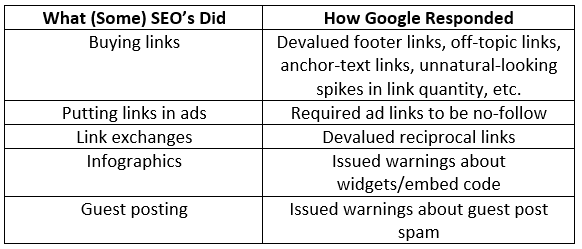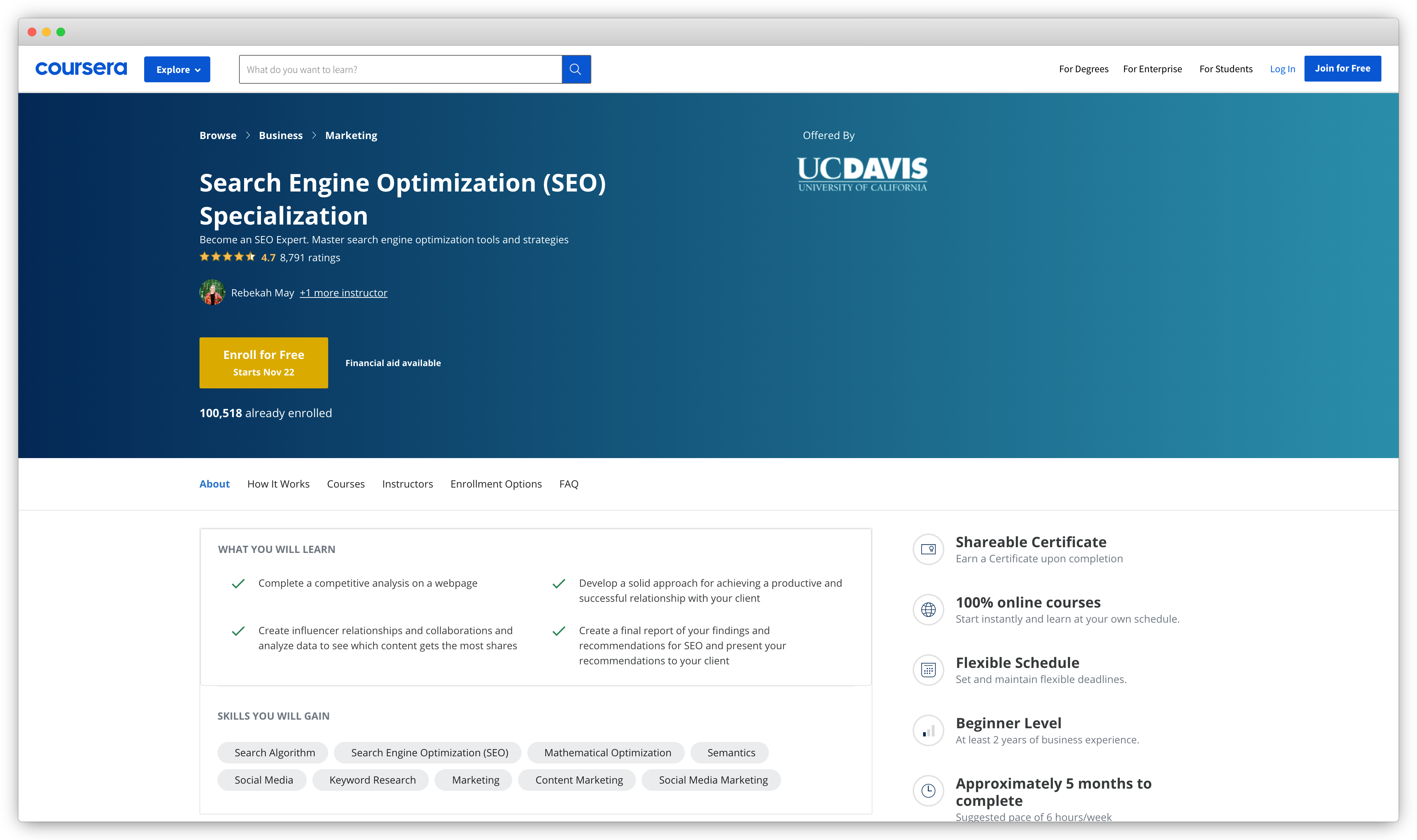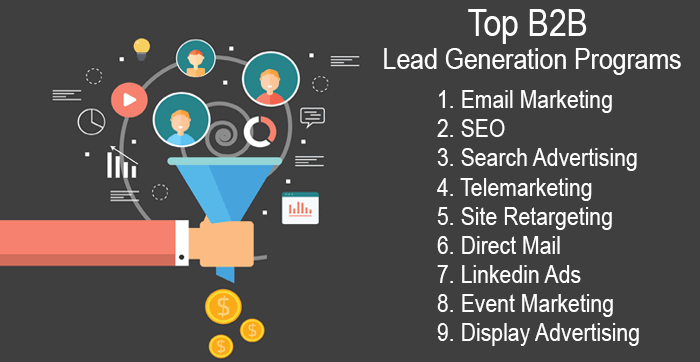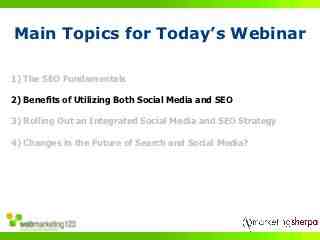Brands and SEO professionals must take responsibility for the performance of the websites they run and manage.
Speaking at SMX Advanced, Bruce Clay, founder and president of digital marketing optimization firm Bruce Clay Inc., will help you achieve next-level website performance by applying these six SEO truths.
1. SEO needs to be a strategic initiative across the company

SEO involves the entire organization. It starts at the management level – everyone needs to understand that SEO is important, commit to it, and make it a priority.
You can’t just do SEO on Monday. One person cannot do SEO randomly. It won’t work if you don’t work on SEO every day.
An organization should think about SEO every time there is a meeting to discuss a website change. Someone in this room needs to ask, “How does this affect SEO?”
“How can we improve the overall quality and performance of our website so that it actually generates traffic or meets company KPIs? … If the commitment is to SEO, and if you believe in it being long-term, then SEO is a winning operation in your business,” Clay said.
2. SEO should beat the competition, not the algorithm

We need to understand how sorting algorithms work. But our job is not to beat the algorithm. Beating the algorithm is an insurmountable battle.
Google makes thousands of changes to its search engine every year. And every keyword you’re trying to optimize for is basically a new algorithm.
Your job is to beat the competition.
The best we can do is determine who is ranking and find out what they are doing. Are there any commonalities? Are there any common words and can we use them better?
“The story I always tell is about two friends who go camping. They pitched their tents. They start a fire. They are cooking a meal and a bear comes along. They start running down the path. The bear is hunting them. The guy in front doesn’t have to be an Olympic runner. He just has to be faster than his friend,” Clay said.
Well, SEO is pretty much the same thing. You have competitors. You have to be better than them.
3. SEO done right cares about content architecture

Websites should be built in such a way that search engines see you as a subject matter expert. Posting authentic and trustworthy information requires a focused effort.
Google favors content that is presented in a clear hierarchical structure. In other words, immersion (eg an electronics site has cameras > digital cameras; a car site has Ford > Mustang). This is called siloing.
“It’s actually better in search because you’ve concentrated all the information about a particular keyword in one place instead of spreading it all over the site,” Clay said. “For SEO to work properly, you need to be a subject matter expert. You can’t just randomly throw a bunch of stuff at a site and expect it to work.”
4. It’s not the job of SEO to make a pig fly

Sometimes no amount of SEO can save a poorly maintained website. That’s why website maintenance should be built into your SEO program.
You can’t just hit the “easy” button and say you want to rank tomorrow if your site looks like it’s 20 years old, hasn’t been updated in years, or isn’t mobile friendly.
“SEO’s job is to take that pig and turn it into an eagle with genetic engineering. Then you might have something that works. Too many people come to us with old technology. They haven’t updated their website in five years. They haven’t updated the content. And they expect the search engine to reward them because of the people who have maintained their sites all along,” Clay said.
Competition in organic search is high. Your competition may have an entire team working on their SEO. Sometimes it can be like trying to compete with sites armed with machine guns when you only have bows and arrows.
5. Cheap SEO is a near-death experience

Cheap SEO has consequences. It can harm you. No business should expect cheap SEO to work well.
Do you want bad advice for half the price or do you want good advice? How long will it take to figure out what went wrong after it goes wrong? And how much will it cost you to fix later?
What you end up with with cheap SEO is inexperienced people experimenting at your expense. And they can often be wrong.
“Do it right and right, the first time. You can’t afford to do that again,” Clay said.
6. SEO is done when Google stops changing things and all your competition dies
SEO is an ongoing project because search is constantly changing. So does your competition. (Oh, and also search behavior.)
Google’s goal is to satisfy users, so they’ve leaned heavily on things like user experience and rewarding truly professional, accurate, and trustworthy content.
“When you’re in an environment like this where the search engine is going to be constantly changing and experimenting and trying to get better — those are the changes that are going to seriously affect your performance in search results,” Clay said. “You can never be done with SEO. Search engines took care of that.”
Danny Goodwin is editor-in-chief of Land & SMX. In addition to writing about SEO, PPC and more for Search Engine Land on a daily basis, Goodwin also manages Search Engine Land’s list of subject matter experts. He also helps plan our conference series, SMX – Search Marketing Expo.
What 4 pillars are important in SEO?
Prior to joining Search Engine Land, Goodwin was an executive editor at Search Engine Journal, where he led editorial brand initiatives. He was also an editor at Search Engine Watch. He has spoken at many major search conferences and virtual events, and has contributed his expertise to numerous publications and podcasts.
- The main goal of the workshop is to understand the basics of SEO, focusing on the key 4 pillars of SEO: relevance, authority, technology and user experience, and pick up some more advanced tips about the future of SEO.
- What are the top 4 elements of content that Google wants? For this research, Google asked content consumers…. Good content has four elements:
- Relevant. People want content that matches their interests. …
- An intellectual. …
What is the most important pillar of SEO?
Sensory. …
What are the main pillars of SEO?
Emotional.
What is the most important part of SEO?
Focusing on these three pillars of SEO will increase opportunities for your content and eventually drive more organic traffic.
What are 3 main areas of SEO?
Instead, SEO is supported by three different pillars: discoverability, relevance, and authority. Make sure your website follows these three SEO concepts for the future and you’ll have a content marketing strategy that will increase your position on the search engine results pages (SERPs).
What are the 3 pillars of SEO?
The #1 Google Ranking Factor At WebTek, we say that the most important parts of SEO and the most important ranking factors in Google are web page titles and title tags. Headlines are the prime real estate of any website – they’re your best chance to tell Google exactly what your website or webpage is about.
What are the major pillars of SEO?
We’ve covered three basic parts of SEO: technical SEO, content/relevance SEO, and promotional/authority SEO.
What is an example of SEO?
Instead, SEO is supported by three different pillars: discoverability, relevance, and authority. Make sure your website follows these three SEO concepts for the future and you’ll have a content marketing strategy that will increase your position on the search engine results pages (SERPs).
The four pillars of SEO include technical SEO, content, on-site optimization, and off-site SEO.
What are examples of SEO keywords?
How they determine the “best” result is based on an algorithm that takes into account authority, relevance to that query, load speed, and more. (For example, Google has over 200 ranking factors in its algorithm.) In most cases, when people think of “search engine optimization†they think of “Google SEO†.
What are good keywords for SEO?
What is on-site SEO? SEO – Search Engine Optimization: The process of improving a website for search engines. Also the job title of the person who does this for a living: We just hired a new SEO to improve our online presence.
What are keywords examples?
Let’s say you wanted to create a page about “keto lunch”. Well, if your website is new, the keyword “lunch†is probably too competitive. But when you type keto lunch into Google, you get a list of long-tail keyword suggestions. Pretty sweet.
What are the 4 types of keywords?
The best keywords for your SEO strategy will take into account relevance, authority and volume. You want to find highly searched keywords that you can reasonably compete for based on: The level of competition you are facing. Your ability to create content that exceeds your current ranking in quality.
What are SEO tools?
Keywords are words and phrases that people type into search engines to find what they are looking for. For example, if you wanted to buy a new jacket, you could type something like “men’s leather jacket” into Google. Although this phrase is made up of more than one word, it is still a keyword.
When researching to discover a user’s search intent, all keywords can be classified into four main intent categories: commercial, transactional, informational, and navigational. With a brief breakdown of each type, we’ll find out what those types are.
What is simple SEO tool?
SEO tools provide data and alerts about the overall health and success of your website. They help uncover areas of opportunity and identify weaknesses or issues that may be preventing you from ranking and gaining visibility in SERP results. Just as each of the actual tools has a specific role, the same goes for SEO.
What is an SEO tool?
Why is an SEO tool used? SEO tools aren’t just useful for tracking your rankings or doing keyword research. You can gain valuable insights about your competition, how your SEO efforts are paying off, and whether you’re generating a good ROI for your clients.
What is simple SEO?
Keyword Ranking Tool Our Simple SEO software uses multiple algorithms to analyze and evaluate your website based on the keywords you specify, and creates a customized set of actions that will help improve your website’s ranking on Google and others popular search engines.
Why is SEO important?
What are SEO Tools? SEO tools provide data and alerts about the overall health and success of your website. They help uncover areas of opportunity and identify weaknesses or issues that may be preventing you from ranking and gaining visibility in SERP results.
SEO stands for Search Engine Optimization and is the process used to optimize a website’s technical configuration, content relevance and link popularity so that pages can become easily found, more relevant and popular to users’ search queries, resulting in better search engine rankings.
Why SEO is important for business?
In short, SEO is crucial because it makes your website more visible, which means more traffic and more opportunities to convert leads into customers. Check out the SEO tools you can use to rank optimally.
What is SEO and why is SEO important for every business?
Why is SEO important in simple words? Importance of SEO SEO is important because it helps people find information and discover pages on the World Wide Web. SEO is especially important for businesses to ensure they are answering their audience’s biggest search engine questions while driving traffic to their products and services.
Why is SEO still important?
A strong SEO strategy will allow brands to place their website and their content high on SERPs for relevant keywords, so they can capture the attention of prospective customers and bring them into their sales funnel. Start strategizing for important keywords using Data Cube.
Why is SEO important for small businesses?
SEO consists of several strategies, actions, and best practices with the ultimate goal of improving your website’s position in search engines, which is why it’s called “search engine optimization.” There are two types of SEO. : on page and off page.
What is SEO and why it is important?
Good SEO leads to a better user experience. Great content, a better understanding of your user, and a positive impact on brand awareness are some of the most attractive benefits of adopting an SEO strategy.
Why is SEO search important?
SEO is important because it helps you establish yourself as an expert in your field and drive traffic to your website, while helping you promote your business organically for free. If you’re not convinced about the importance of SEO, you’re not alone. Only 36% of small businesses have an actual SEO strategy.

